Encyclopaedia of Astrology ( In 5 Volumes)
Vol. II: Scientific astrology : A complete guide to the art of erecting the horoscope: Introduction. 1. The planets, the seven spirits before the throne. 2. Time and place as factors in calculation of the horoscope. 3. Signs and houses. 4. The rising sign and the twelve houses. 5. How to calculate the positions of the planets. 6. The aspects. 7. Making the index. 8. Evolution as shown in the Zodiac. 9. The measure of amenability to planetary vibrations. 10. Astrology as a gainful occupation. 11. Astrology without imagination. 12. Modern astronomy. 13. Aberrations. 14. Calculation of Birth Governor. 15. Interpretation of Birth Governor. 16. The Birth Governor and progressive. 17. Afterword. 18. Philosophic encyclopaedia of astrology.
Vol. III: Casting horoscopes : Practical methodology: 1. The ephemeris and the information it supplies. 2. Sidereal time: What is means, and why it differs from clock time. 3. Local time as a factor in the horoscope. 4. The houses of horoscope. 5. A few definition. 6. The calculation of the horoscope in detail. 7. A simple method whereby to calculate a correct horoscope for any place, by means of the table of acendants. 8. The time of birth, methods of rectification. 9. Logarithms and their use. 10. The trigonometrical method. 11. The rectification of the horoscope when Birthtime is approximate or unknown. 12. Various methods of house-division. 13. The real zodiac: its bearing on the Phen Omenon of retrogradation. 14. How to use the condensed Ephemor is for practical work where great precision is not required. 15. Reading the horoscope introductory. 16. Influence of the twelve signs when rising. 17. Intrinsic nature of the planets. 18. Progression of the horoscope fate and free will. 19. Different methods of progression. 20. Progressed solar directions and the reason for them. 21. Progressed lunar directions.
Vol. IV: The message of the stars: Stars and their role in astrology: Introduction. 1. The Sun's teaching. 2. The host of the stars. 3. The dance of stars. 4. Comets and portents. 5. The stars as messengers of fate. 6. Do the stars dominate Christendom? 7.The starry sky-observation and theory. 8. Do the stars resemble living beings? 9. Man and the mysteries of the stars. 10. The children of the twelve signs. 11. The Sun, giver of life. 12. Venus the planet of love. 13. Mercury, the planet of reason. 14. Moon, the planet of fecundation. 15. Saturn, the planet of sorrow. 16. Jupiter, the planet of benevolence. 17. Mars, the planet of action. 18. Planetary octaves : (Neptune-mercury and Uranus-venus). 19. Uranus, the planet of Altruism. 20. Neptune, the planet of Qivinity.
Vol. V: Reading horoscopes : detailed study of famous horoscopes: Introduction. 1. Sri Krishna. 2. Sri Gautama Buddha. 3. Alexander the great. 4. Augustus Caesar. 5. Sri Adi Sankaracharya. 6. Jesus Christ. 7. Emperor Nero. 8. Prophet Mahamud. 9. Sri Ramanujacharya. 10. Omar Khayyam. 11. Chengiz Khan. 12. Swami Vidyaranya. 13. Guru Nanak. 14. Sri Chaitanya. 15. Akbar the great. 16. Aurangzeb. 17. Shivaji the great. 18. Hyder Ali. 19. Johann Wolfgang Goethe. 20. Tippu Sultan. 21. Sri Thyayaraga. 22. Abraham Lincaln. 23. Karl Marx. 24. Sri Ramakrishna Paramhamsa. 25. Bangalore Suryanarain Rao. 26. Bala Gangadhara Tilak. 27. George Bernard Shaw. 28. Jagadish Chandra Bose. 29. Rabindranath Tagore. 30. Sri Swami Vivekananda. 31. Sayaji Rao II, Gaekwar of Baroda. 32. Henry Ford. 33. Sri Ashutosh Mukerjee. 34. Mohandas Karamchand Gandhi. 35. Chittaranjan Das. 36. Aurobindo Ghose. 37. Pope Pius XII. 38. Albert Einstein. 39. Sri Ramana Maharshi. 40. Franklin Delano Roosevelt. 41. Vinayak Damodar Savarkar. 42. Benito Mussolini. 43. Rajendra Prasad. 44. Kasturi Srinivasan. 45. Swami Sivananda. 46. Adole Hitler. 47. Javaharlal Nehru. 48. Ramakrishna Dalmia. 49. Meher Baba. 50. An example for Raja Yoga. 51. An example for Dhana Yoga. 52. Subash Chandra Bose. 53. An example for scientific eminence. 54. Madhavarao Sadasivrao Golwalkar. 55. Nathuram Vinayak Godse. 56. An example for poverty. 57. An example for Raja Yoga. 58. Bangalore Venkata Raman. 59. Lord Tennyson. 60. Queen Victoria. 61. Herbert George Wells. 62. Harry S. Truman. 63. Sri Krishnaraja Wadiyar IV. 64. The Nizam of Hyderabad. Index.
Astrology is the science which classifies and correlates causes and effects. It is the science which demonstrates that the celestial bodies are the prime movers (causes) which exert forces on the Earth and upon things on the earth, thus producing patent effects of an eventful character. Astrology is the science which explains the natures laws that connect stellar dynamic causations with mundane events, and which traces out the systems of chains of causes and effects.But astrology is not only a science. It is also a philosophy. For it seeks to show that each and every human being has an appointed and pre-ordained Destiny to fulfil. It is by means of the scientific principles on which the practice of astrology is based, that a competent astrologer can proceed to show the individual the path of her personal destiny through the process of interpreting the native's horoscope.
It is from the study of the elements of a birth chart that a modern astrologer can accurately determine the Character, Opportunities and Destiny, of the owner of the horoscope.
Monsieur G.L. Brahy (a well-known Belgian astrologer) says in his book Confessions of an Astrologer.
It will be seen that astrological diagnosis ought to be understood in the same sense as that of a lawyer, for example, or that of a doctor of medicine. It consist essentially of putting the patient on guard against risks which he would not have suspected in time had he been left to his own resources and of indicating the precautions which should be taken. It ought to have as object the facilitation of the undertaking of responsibilities, to show the individual the extent of his duties towards himself, towards his family, towards his superiors and even towards his inferiors. If one reflects deeply, one can see that the field of utility which presents itself therein is truly immense!
The Encyclopaedia of astrology is possibly the first such attempt to deal with the subject in a comprehensive yet simple manner.
Get it now and save 10%
BECOME A MEMBER

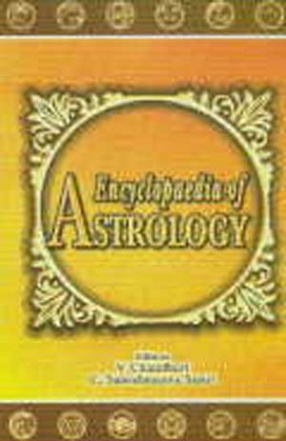
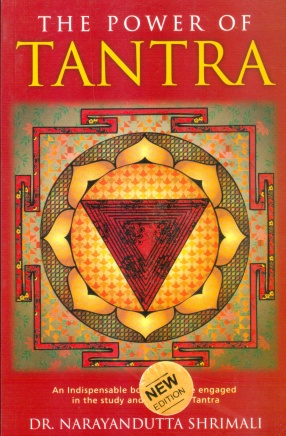
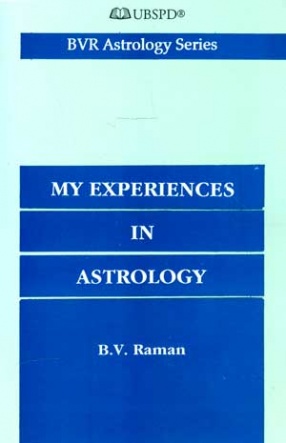
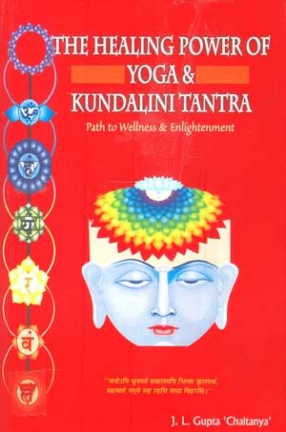
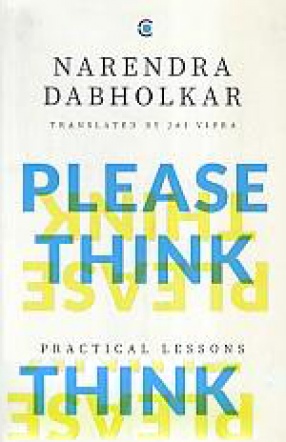

Bibliographic information
C. Subrahmanya Sastri